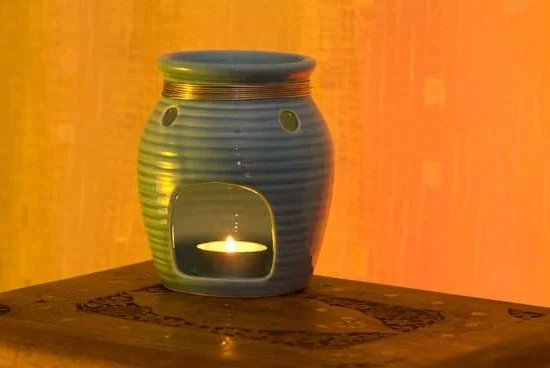Lavender oil, known for its aromatic properties, has been used in aromatherapy for centuries. This article delves into the power of lavender oil in aromatherapy, exploring its origins, chemical composition, therapeutic properties, and various ways to use it for relaxation and stress reduction. With a rich history and a wide range of benefits, lavender oil is a game-changer in the realm of aromatherapy.
Aromatherapy is a practice that utilizes essential oils, such as lavender oil, to enhance physical and emotional well-being. The therapeutic benefits of aromatherapy are numerous, including stress relief, improved sleep quality, and mood enhancement. Lavender oil, with its soothing scent and healing properties, is one of the most popular essential oils used in this practice.
The origins of lavender oil can be traced back to ancient civilizations like Egypt and Rome. Throughout history, it has been renowned for its calming effects on the mind and body. The chemical composition of lavender oil contributes to its therapeutic properties. It contains compounds such as linalool and linalyl acetate which have sedative qualities and promote relaxation.
In the following sections of this article, we will dive deeper into the science behind lavender oil’s effects in aromatherapy. We will explore its specific benefits in promoting relaxation, easing anxiety, and reducing stress. Additionally, we will discuss different methods to incorporate lavender oil into your aromatherapy routine through inhalation techniques or using it during massages.
Stay tuned as we unravel precautions and safety measures that should be kept in mind while using lavender oil in aromatherapy. Furthermore, we will provide DIY recipes and blends that maximize the healing potential of lavender oil.
By harnessing the soothing powers of lavender oil for aromatherapy purposes, you can truly experience a transformational journey towards wellness and balance.
Understanding Aromatherapy
Aromatherapy is a holistic healing practice that has been used for centuries to promote physical, emotional, and psychological well-being. This section will provide a brief overview of aromatherapy and highlight its numerous benefits for the mind and body.
What is Aromatherapy?
Aromatherapy involves the use of essential oils, such as lavender oil, to enhance physical and emotional health. These essential oils are derived from various plant sources and capture the natural aromatic compounds and therapeutic properties of the plants. When inhaled or applied to the skin, these oils can have profound effects on our body systems.
The Benefits of Aromatherapy
Aromatherapy offers a wide range of benefits for our overall well-being. One of the key advantages is its ability to promote relaxation and reduce stress levels. Certain essential oils, including lavender oil, have calming properties that can help calm racing thoughts, relieve tension, and induce a sense of tranquility.
In addition to relaxation, aromatherapy has also shown promising results in managing anxiety and improving mood. Essential oils like lavender can stimulate the release of serotonin and dopamine in the brain, which are neurotransmitters associated with happiness and relaxation. This can effectively reduce feelings of anxiety or depression and uplift one’s spirit.
Furthermore, aromatherapy has been known to support better sleep quality. Lavender oil is particularly effective in promoting restful sleep by soothing the mind and creating a peaceful atmosphere in which to unwind. Diffusing lavender oil before bedtime or adding a few drops to a warm bath can create an environment conducive to deep sleep.
Overall, understanding aromatherapy allows us to tap into its vast range of benefits for both physical and mental well-being. Incorporating this holistic practice into our daily routines can provide significant improvements in our overall quality of life.
The Origins of Lavender Oil
Lavender oil has been used for centuries due to its pleasant aroma and numerous therapeutic properties. The origins of lavender oil can be traced back to ancient civilizations, where it played a significant role in various cultures and traditions.
One of the earliest known uses of lavender dates back to ancient Egypt, where it was used in the embalming process. It was also highly valued by the Greeks and Romans, who utilized it for bathing, cooking, and as a perfume. Gradually, lavender spread across Europe and became popular during the Renaissance period.
In addition to its aromatic qualities, lavender oil was recognized for its medicinal benefits throughout history. It has long been appreciated for its soothing and relaxing properties, making it a staple in traditional medicine practices. Lavender oil was often used to alleviate headaches, promote restful sleep, and improve overall well-being.
The rich history of lavender oil reflects its significance in different cultures throughout time. Its versatility and healing properties have allowed it to stand the test of time as a beloved essential oil in aromatherapy practices worldwide. The exploration of lavender’s past serves as an important reminder of the deep-rooted connection between nature and our well-being.
The Science of Lavender Oil
Lavender oil is not just a pleasant-smelling substance, it also has an impressive chemical composition that contributes to its therapeutic properties. This section will delve into the science behind lavender oil and explore its chemical components that make it such an effective tool in aromatherapy.
Lavender oil is primarily composed of terpenes, which are organic compounds found in many plants. The most abundant terpene in lavender oil is linalool, which is responsible for its relaxing and calming effects. Linalool has been found to have sedative properties, making it a powerful tool in relieving anxiety and promoting better sleep.
Another important component of lavender oil is linalyl acetate, which gives the oil its distinct floral scent. This compound also exhibits anti-inflammatory and analgesic properties, making lavender oil effective in reducing pain and inflammation.
In addition to terpenes, lavender oil also contains esters such as cineole, geranial, and nerol. These esters contribute to the antimicrobial properties of lavender oil, making it useful in treating skin conditions such as acne and fungal infections. Lavender oil also contains antioxidants like limonene and alpha-pinene, which help protect cells from damage caused by free radicals. These antioxidants contribute to the overall health-promoting properties of lavender oil.
Understanding the chemical composition of lavender oil helps explain why it is so effective in aromatherapy. When inhaled or applied topically, the compounds in lavender oil interact with the limbic system in our brain – the part responsible for emotions and memories. Through this interaction, lavender oil can promote relaxation, reduce anxiety levels, improve mood, and even enhance cognitive function.
The Benefits of Lavender Oil in Aromatherapy
Lavender oil is widely regarded as one of the most versatile and popular essential oils used in aromatherapy. Its benefits extend far beyond just its pleasant scent, as it has been found to promote relaxation, ease anxiety, and reduce stress. These therapeutic properties make lavender oil an invaluable tool in the practice of aromatherapy.
Promoting Relaxation
One of the primary benefits of lavender oil in aromatherapy is its ability to promote relaxation. The aroma of lavender has a calming effect on both the mind and body, helping to reduce feelings of tension and anxiety. Studies have shown that inhaling lavender oil can have a sedative-like effect, promoting a sense of tranquility and peace.
Easing Anxiety
Anxiety is a common condition that affects millions of people worldwide. Fortunately, lavender oil has been found to be an effective remedy for easing anxiety symptoms. Its soothing scent helps to calm the nervous system and reduce feelings of restlessness or unease. Additionally, research has shown that lavender oil may help lower heart rate and blood pressure during times of stress or anxiety.
Reducing Stress
Stress is another prevalent issue that can have detrimental effects on both physical and mental health. Lavender oil offers a natural way to combat stress by promoting relaxation and reducing feelings of tension. Inhaling the aroma or applying diluted lavender oil topically can activate certain brain receptors that regulate mood and emotions, leading to a reduction in stress levels.
Different Ways to Use Lavender Oil in Aromatherapy
One of the great things about lavender oil is its versatility in aromatherapy. There are various ways that you can use lavender oil to reap its benefits and create a calming and soothing atmosphere. From inhalation methods to using it in massage, let’s explore different ways to incorporate lavender oil into your aromatherapy routine.
- Inhalation: One of the most common and effective ways to use lavender oil in aromatherapy is through inhalation. You can simply add a few drops of lavender oil to a diffuser and let the aroma fill the room. Alternatively, you can apply a few drops onto a tissue or cotton ball and inhale deeply. The inhalation of lavender oil has been shown to promote relaxation, reduce stress, and even improve sleep quality.
- Massage: Lavender oil is also commonly used in massage therapy as it possesses analgesic (pain-relieving) properties and helps alleviate muscle tension. To use lavender oil for massage, dilute it with a carrier oil such as coconut or jojoba oil before applying it to the skin. This not only ensures safety but also helps spread the essential oil evenly across the body.
- Bathing: Another way to incorporate lavender oil into your aromatherapy practice is by adding it to your bath water. You can combine a few drops of lavender oil with Epsom salts or a carrier oil before adding it to your bathwater for a relaxing soak. The warm water combined with the soothing scent of lavender can help alleviate stress, relax your muscles, and promote better sleep.
In addition to these methods, you can also use lavender oil in other ways such as making DIY room sprays, adding it to your skincare routine, or even incorporating it into homemade candles or soaps. The possibilities are endless when it comes to using lavender oil in aromatherapy.
| Method | Description |
|---|---|
| Inhalation | Add a few drops to a diffuser or inhale directly from a tissue or cotton ball to enjoy the calming aroma. |
| Massage | Dilute lavender oil with a carrier oil and use it for a soothing massage to relieve muscle tension and promote relaxation. |
| Bathing | Add a few drops of lavender oil to your bathwater for a luxurious and relaxing experience that helps alleviate stress. |
Remember, when using lavender oil in aromatherapy, always follow usage guidelines and take necessary precautions. Lavender oil is generally safe for most people, but it’s important to keep in mind any potential allergies or sensitivities. With its various uses, lavender oil can truly enhance your aromatherapy practice and provide you with the soothing benefits you’re seeking.
Precautions and Considerations
While lavender oil is generally safe for use in aromatherapy, it is important to take certain precautions and considerations to ensure a positive and safe experience. Here are some safety measures to keep in mind when incorporating lavender oil into your aromatherapy practice:
- Dilution: Lavender oil is highly concentrated, so it is essential to dilute it before using it topically. Undiluted essential oils can cause skin irritation or sensitization. To dilute lavender oil, mix a few drops with a carrier oil such as coconut oil, almond oil, or jojoba oil. This will help prevent any adverse reactions and ensure the oil is gentle on your skin.
- Allergies: While rare, some individuals may have allergic reactions to lavender oil. It is advisable to perform a patch test before using lavender oil for the first time. Apply a small amount of diluted lavender oil on the inside of your forearm and wait for 24 hours to check for any signs of redness, itching, or swelling.
- Pregnant Women and Children: Pregnant women and young children should exercise caution when using essential oils, including lavender oil. It is recommended to consult with a healthcare professional before using lavender oil during pregnancy or applying it directly on children’s skin.
- Sensitivity: Some individuals may have heightened sensitivity to scents or aromas. If you find that inhaling lavender oil triggers headaches, nausea, or other discomforts, it may be best to avoid its use or consult with a healthcare professional.
- Quality of the Oil: To ensure safety and effectiveness, always choose high-quality lavender essential oils from reputable brands. Look for oils that are pure and therapeutic grade without any additives or synthetic substances.
By keeping these precautions in mind, you can safely enjoy the benefits of lavender oil in aromatherapy and prevent any potential adverse reactions. Remember to always follow proper dilution guidelines and consult with a healthcare professional if you have any concerns or specific health conditions.
Lavender Oil Recipes for Aromatherapy
Lavender oil is a versatile essential oil that can be used in various ways to enhance the benefits of aromatherapy. In this section, we will explore some DIY blends and methods that can maximize the healing potential of lavender oil.
One popular way to use lavender oil in aromatherapy is through diffusing. Diffusers disperse the aromatic molecules of lavender oil into the air, allowing you to inhale them and experience their therapeutic effects. You can add a few drops of lavender oil to a diffuser and let it fill your space with its soothing scent. This method is particularly effective for promoting relaxation, relieving stress, and improving sleep quality.
Another way to utilize the healing properties of lavender oil is by creating your own massage oils or body lotions. Lavender oil can be mixed with carrier oils such as coconut or jojoba oil to create a calming blend for massage therapy. The combination of the gentle pressure from massaging and the soothing aroma of lavender oil can help reduce muscle tension, alleviate headaches, and promote overall relaxation.
In addition to diffusion and topical application, you can also incorporate lavender oil into your bath routine for a truly indulgent aromatherapy experience. Adding a few drops of lavender oil to your bathwater can create a calming atmosphere and provide relief from stress and anxiety. You can also try mixing lavender oil with Epsom salts for an extra beneficial soak that can help relax tired muscles and promote better sleep.
| Different Ways to Use Lavender Oil | Benefits |
|---|---|
| Diffusing | Promotes relaxation, relieves stress, improves sleep quality |
| Massage or body lotion | Reduces muscle tension, alleviates headaches, promotes relaxation |
| In baths | Creates a calming atmosphere, provides relief from stress and anxiety, relaxes tired muscles |
With these DIY blends and methods, you can personalize your aromatherapy practice and harness the full potential of lavender oil for healing and relaxation. Experiment with different combinations and find what works best for you.
However, it’s essential to remember that essential oils are potent substances and should be used with caution. Always dilute lavender oil properly before applying it topically or using it in a diffuser, and consult a healthcare professional if you have any concerns or medical conditions.
Additional Tips and Resources
In addition to using lavender oil in aromatherapy for relaxation and stress relief, there are many other tips and resources available to help you maximize its healing potential. By expanding your knowledge on lavender oil and various aromatherapy techniques, you can enhance your overall well-being and experience even greater benefits from this aromatic essence.
One helpful resource is books about aromatherapy that specifically focus on lavender oil. These books provide in-depth information about the history, properties, and uses of lavender oil, as well as detailed instructions for blending it with other essential oils. They often include recipes for specific purposes such as promoting sleep, relieving headaches, or easing muscle tension. Some notable titles include “The Complete Guide to Aromatherapy” by Salvatore Battaglia and “Aromatherapy for Health Professionals” by Len Price.
Another valuable resource comes in the form of online communities and forums dedicated to aromatherapy enthusiasts. These platforms allow individuals from around the world to connect, share their experiences, and exchange tips and recommendations for using lavender oil effectively. Engaging with these communities can provide inspiration, guidance, and support as you explore different ways to incorporate lavender oil into your everyday life.
Additionally, professional aromatherapists or certified practitioners can offer personalized guidance on how to use lavender oil for specific purposes or address specific health concerns. They have comprehensive knowledge of essential oils, including lavender oil, and can provide expert advice on dosage, application methods, and potential contraindications. Consulting with a professional ensures that you are using lavender oil safely and effectively based on your unique needs.
Expanding your knowledge on lavender oil and aromatherapy techniques will allow you to discover new ways to incorporate this powerful essence into your daily routine. Whether through books, online communities, or seeking professional guidance, there is a wealth of information available to help you harness the full potential of lavender oil in aromatherapy. By continually learning and experimenting with different methods, you can unlock the many benefits and promote overall well-being in your life.
Conclusion
Lavender oil has long been revered for its soothing and calming properties, making it a true game-changer in the world of aromatherapy. Throughout history, lavender oil has been used for its therapeutic benefits, promoting relaxation, easing anxiety, and reducing stress. Its chemical composition and therapeutic properties have been scientifically explored and validated, solidifying its place as a powerful tool in promoting emotional well-being.
Incorporating lavender oil into your aromatherapy routine can be done in various ways. From inhalation to massage and beyond, there are numerous methods to experience the benefits of this aromatic essence. Whether diffusing it into the air or incorporating it into a massage oil blend, lavender oil offers versatility in how it can be enjoyed.
It’s important to keep safety precautions in mind when using lavender oil in aromatherapy. Diluting the oil properly and conducting patch tests are essential steps to ensure safe usage. By following these precautions and considerations, you can fully optimize the healing potential of lavender oil without any adverse reactions.
In conclusion, lavender oil is a true powerhouse when it comes to aromatherapy. Its ability to promote relaxation, ease anxiety, reduce stress, and enhance emotional well-being makes it an invaluable tool in self-care practices. By harnessing the soothing powers of lavender oil, you can truly transform your aromatherapy experience and improve your overall quality of life.
Frequently Asked Questions
What are the benefits of smelling lavender essential oil?
Lavender essential oil offers a range of benefits when it comes to aromatherapy. First and foremost, its soothing scent has calming properties that can help reduce stress and anxiety. Inhaling lavender oil has been found to promote relaxation, improve mood, and even alleviate symptoms of depression.
Additionally, the fragrance of lavender can aid in promoting a restful sleep by reducing insomnia and enhancing sleep quality. Moreover, lavender oil possesses antimicrobial properties that may be beneficial for treating certain skin conditions, such as acne or minor cuts or scrapes.
How does lavender oil make you feel?
The aroma of lavender oil is renowned for its ability to induce a sense of tranquility and relaxation. When inhaling lavender essential oil, many people experience a feeling of calmness wash over them, relieving tension and promoting a peaceful state of mind.
Lavender’s scent can also evoke feelings of comfort and serenity, helping to alleviate feelings of stress or anxiousness. Furthermore, the pleasant fragrance may enhance overall well-being by evoking positive emotions and improving mood.
When should I use lavender essential oil?
There are various situations where using lavender essential oil can be advantageous. To begin with, incorporating lavender oil into your bedtime routine may facilitate better sleep by promoting relaxation and reducing insomnia symptoms. Similarly, during moments of high stress or anxiety, diffusing lavender essential oil or applying it topically (properly diluted) can provide a calming effect on the mind and body, allowing you to unwind and find relief from tension.
Moreover, if you struggle with headaches or migraines, massaging diluted lavender oil onto your temples can potentially help alleviate discomfort due to its analgesic properties. Lastly, lavender’s antimicrobial characteristics make it suitable for minor wound care or aiding in the treatment of skin irritations such as acne or eczema when used appropriately under professional guidance.

Are you looking for a natural way to improve your health and wellbeing?
If so, aromatherapy may be the answer for you.





